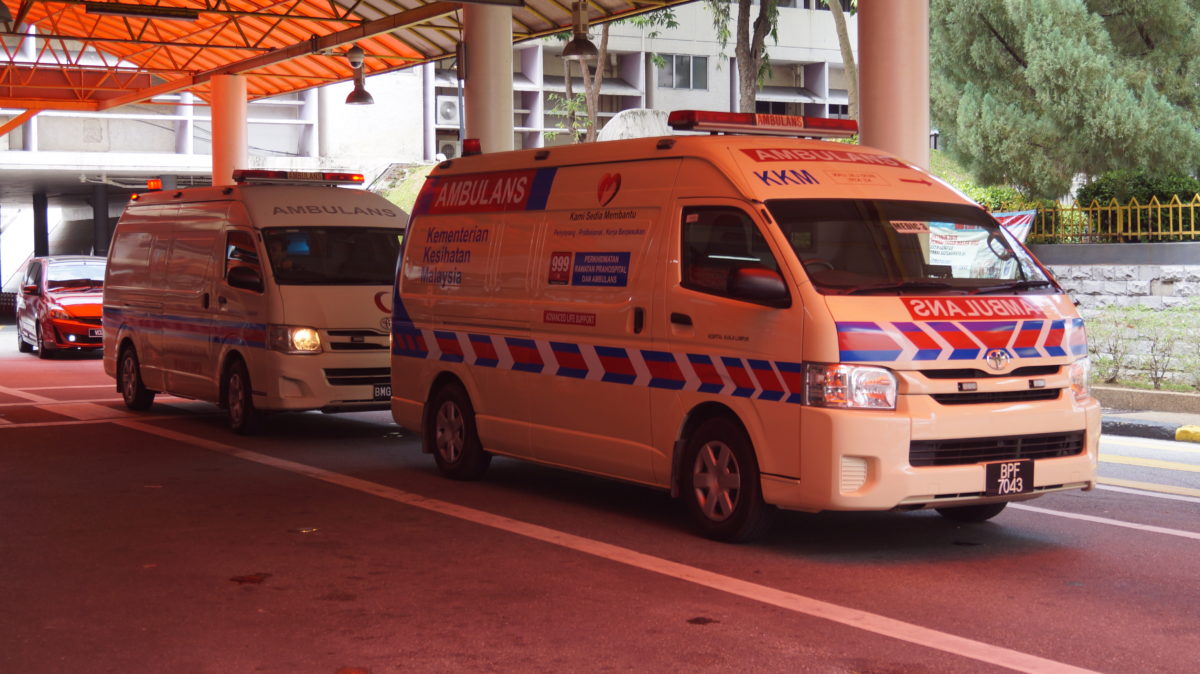KUALA LUMPUR, Nov 15 – Deputy Health Minister Lukanisman Awang Sauni announced yesterday the government’s plan to procure 590 ambulances over the next two years in stages.
Lukanisman told the Dewan Rakyat that due to the Covid-19 pandemic, many vehicles belonging to the health ministry have experienced increased mileage. This has led to some ambulances being out of service, exacerbating the demand for more ambulances.
“Everywhere the health minister and I go, we often get complaints and requests for more ambulatory services which are urgently needed in every hospital across the country.
“In the second half of next year, in 2024, we will be procuring 590 ambulances in stages, in 2024 and 2025, and we expect good news for Sultanah Fatimah Specialist Hospital (formerly Muar Hospital).
“We should be able to deliver five new ambulances (to the Sultanah Fatimah Specialist Hospital) so that health services can be delivered faster to our clients (the community),” Lukanisman said in response to Muar MP Syed Saddiq Syed Abdul Rahman’s question in Parliament on the hospital’s ambulance services.
Syed Saddiq said that the specialist hospital currently operates with only five ambulances, with three constantly undergoing repairs.
This has resulted in longer wait times for ambulatory services due to the hospital’s extensive coverage, which spans multiple constituencies from Pagoh to Semerah. The hospital has indicated a need for at least 10 ambulances.
Bakri MP Tan Hong Pin last month raised similar concerns about the lack of ambulances at the specialist hospital. Tan held that the Sultanah Fatimah Specialist Hospital does not only cater to the Muar populace but is also a part of a cluster of hospitals that treat patients from other districts in Northern Johor. This results in a high demand for ambulance units.
“We will strive to improve and also through the Health White Paper, we have this pillar where public-private partnerships will be utilised to improve the quality of ambulance services in the future,” Lukanisman said.
The deputy health minister did not specify the cost for acquiring the 590 ambulances.
According to the Auditor-General’s (AG) 2021 Series 2 report, published in March, an ambulance procured in an emergency by Tawau Hospital in Sabah cost RM447,500 and arrived 10 months late.
Tawau Hospital had 12 ambulances prior to the purchase, with seven in good condition and the remaining five were ‘beyond economic repair’.
Further analysis in the report revealed that Tawau Hospital left a total of 1,543 emergency calls unanswered, with 1.1 percent (17 calls) attributed to a shortage of ambulances. The majority of the unanswered calls (1,138 calls) were redirected to the Medical Emergency Coordinating Centres (MECC).
The same report also disclosed that the MOH fell short of its 50 per cent target for responding to Priority 1 cases – such as stroke, breathing difficulties, and accidents – within 15 minutes, achieving only 31.5 to 41.8 per cent between 2017 and 2021.
The failure to achieve the 50 per cent target was attributed to failure to activate the response team at the hospital closest to the incident and significant distance between the emergency site and the nearest hospital, which in some cases, ranged from 60km to 443km.
Lukanisman said that waiting times at Sultanah Fatimah Specialist Hospital remain within MOH’s target of under 240 minutes, or four hours.
“The Sultanah Fatimah Specialist Hospital is among the MOH hospitals that has succeeded in achieving the target waiting time of less than 240 minutes, and based on this record, the congestion issue in this hospital is still well handled by the MOH.
“As of February 2023, the bed occupancy rate at the Sultanah Fatimah Specialist Hospital in Muar is at 62.6 per cent of 575 beds, with an average bed waiting time – in 2022 – of 32 minutes,” Lukanisman said.
He added that RM4.16 million has been allocated for the fixing, renovating, and upgrading of the hospital’s infrastructure this year.
Out of the total amount allocated, RM1.55 million has been designated for upgrading, renovation and repair works, RM2.56 million as sinking funds, and RM50,000 for the sustainability programme. The sustainability programme covers the installation of energy-efficient air conditioners.
“This year, there are a few pieces of medical equipment in the hospital which are being replaced, and among it is the multidetector computed tomography (MDCT) scanner, which costs as much as RM5.5 million, and digital mammography for the use of the radiology department with a cost of RM9 million, which will be implemented beginning in 2024.”
Additionally, the MOH has also approved the upgrade of the hospital’s wastewater treatment plant, with a projected cost of RM7.6 million. “This project is undergoing the tender process and is scheduled to be carried out in June 2024 with a completion time of 84 weeks.”








